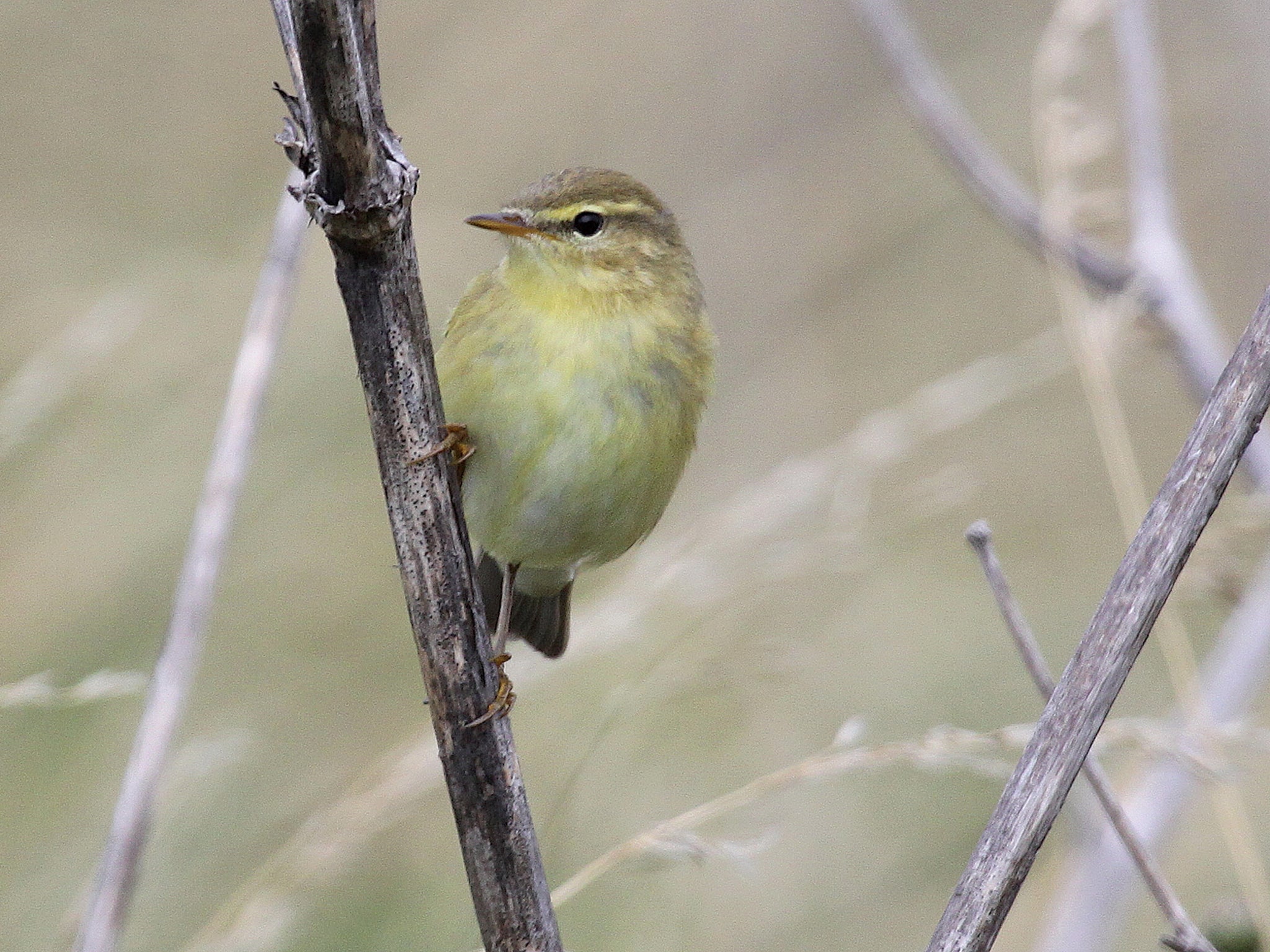Post election, the other big story is about a tiny, lost bird
Nature Studies: I have heard not one willow warbler so far this spring

Your support helps us to tell the story
From reproductive rights to climate change to Big Tech, The Independent is on the ground when the story is developing. Whether it's investigating the financials of Elon Musk's pro-Trump PAC or producing our latest documentary, 'The A Word', which shines a light on the American women fighting for reproductive rights, we know how important it is to parse out the facts from the messaging.
At such a critical moment in US history, we need reporters on the ground. Your donation allows us to keep sending journalists to speak to both sides of the story.
The Independent is trusted by Americans across the entire political spectrum. And unlike many other quality news outlets, we choose not to lock Americans out of our reporting and analysis with paywalls. We believe quality journalism should be available to everyone, paid for by those who can afford it.
Your support makes all the difference.Great events tend to dominate our lives, do they not? The general election of ten days ago brought a great deal of despair for some, delight for others, and we haven’t stopped talking about it since.
If we look across the world we see wars, we see floods of refugees, we see injustices on the grand scale, all of which must merit our attention; so why should what, in the scheme of things, is a minuscule change, deserve any notice at all?
I can only say that I cannot help myself, and I cannot help noticing, and grieving for, the disappearance of a tiny bird: the willow warbler.
It is one of our smallest, about the size of a man’s thumb, and for all my life its arrival from its African wintering grounds has been a charming signal of the start of spring.
Not the most familiar one, perhaps. In the list of markers of springtime, blossom is maybe at the top, with spring flowers, while some people are thrilled by the first sight of butterflies like orange tips and brimstones.
As far as birds go, the cuckoo with its two-note call has to be the clearest sign of the new season, followed by the arrival of the first swallows, and then the nightingale.
Dull olive-green, hard to see high in the branches, the willow warbler is by no means as prominent, culturally: it has no place in classical literature or in Shakespeare, as cuckoos, swallows and nightingales all do, because warblers are quite similar and confusing birds, and were not separated out until the end of the eighteenth century.
But in my own life I found (as did many other people) that to know it was to love it, for its song above all: a soft, silvery descending cascade, that must be one of the sweetest sounds of April and May.
And now it’s gone. Or at least, in recent years it has largely gone from many parts of southern England, where previously it was ubiquitous: it was once estimated that about four million willow warblers came to Britain every year, making them the most numerous of all the spring migrants from Africa.
It hasn’t gone from everywhere, but it’s gone from many places; in a curious development, its numbers are steadily increasing in Scotland, but no one knows why the figures are increasing in the North, any more than why their numbers are declining down in the South.
I have heard not one so far this spring, over several outings into the countryside, including one which was a warbler-fest: with friends I went for a long walk on the Suffolk marshes where the dykes are topped with thorn scrub, making it ideal warbler territory.
We encountered seven species: chiffchaffs, blackcaps, whitethroats and lesser whitethroats in the scrub, reed warblers, sedge warblers and Cetti’s warblers in the dykes – all singing, and some giving particular pleasure, such as the blackcaps with their liquid fluting and the whitethroats with their scratchy, cheerful jingles.
But not a willow warbler: not a hint of that charming, falling cadence which once was as much a part of a May day in the beautiful English countryside as hawthorn blossom.
Does it matter? Does it matter in the great scheme of things that this small bird is, in many places, no longer part of our lives, when we have so many other pressing issues to consider, from social justice down?
Can it be weighed in the balance with the outcome of a general election, say?
I suppose the rational answer is no, how can they possibly be compared?
But then, not all of life is rational, and part of me says, they do not need to be compared, and somewhere in the heart of life, the vanishing of that tiny, silvery springtime song cries out to be lamented.
Join our commenting forum
Join thought-provoking conversations, follow other Independent readers and see their replies
Comments